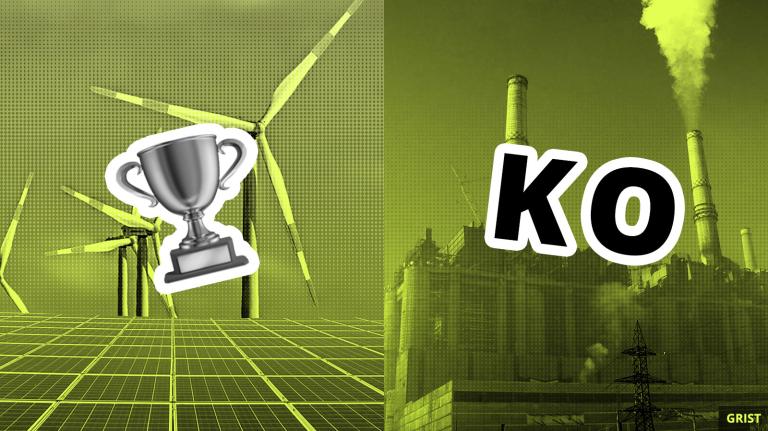It’s Wednesday, April 8, and the coronavirus pandemic has the U.S. oil industry feeling ill.
![]()
Weeks before most Americans were aware that a pandemic would grind the United States economy to a halt, the Energy Information Administration predicted that carbon dioxide emissions from U.S. energy generation would fall by 2 percent this year and decrease another 1.5 percent in 2021.
That was in mid-January. On Tuesday, the Energy Information Administration, or EIA, put out a very different forecast: Energy-related carbon emissions will fall by 7.5 percent this year due to the COVID-19 crisis, a larger decrease than the one that occurred in the wake of the financial crisis more than a decade ago. The newly predicted emissions free fall can be attributed to an economy that’s suddenly in lockdown with millions of people staying home every day and industrial activity slowed.
On top of the new emissions forecast, the Energy Department has bad news for oil producers: U.S. officials will likely have to stop referring to the country as a net-exporter of oil, stymying a years-long march to become an international force in the crude oil game. The EIA estimates that U.S. oil production will drop by more than 1 million barrels per day due to the novel coronavirus. Americans will consume 9 percent less gasoline to fuel motor vehicles compared to 2019, and jet fuel consumption will fall by 10 percent year over year.
These effects aren’t permanent — emissions are expected to jump 3.6 percent in 2021 as the economy comes back from the brink — but the pandemic is providing a timely reckoning for the fossil fuel industry.

The Smog
Need-to-know basis
China is considering adding more coal plants to mitigate the economic fallout of the coronavirus pandemic, according to a new report. Analysts say the new plants would create jobs and help China hit its economic growth and energy security goals, but these high-polluting operations wouldn’t actually turn a profit; in China, as in many other countries around the world, coal plants are reliant on government subsidies.
![]()
New research suggests that residents of counties with high levels of air pollution are more likely to die from COVID-19. Scientists at Harvard analyzed COVID-19 death rates across the United States and found a correlation between fine particulate matter pollution (PM 2.5) and mortality.
![]()
Analysts say that global sales of electric vehicles could drop by 43 percent this year as the coronavirus slows the economy to a near-halt. Low oil prices are reducing the demand for EVs, and many consumers are waiting until the economy recovers to make big purchases.

